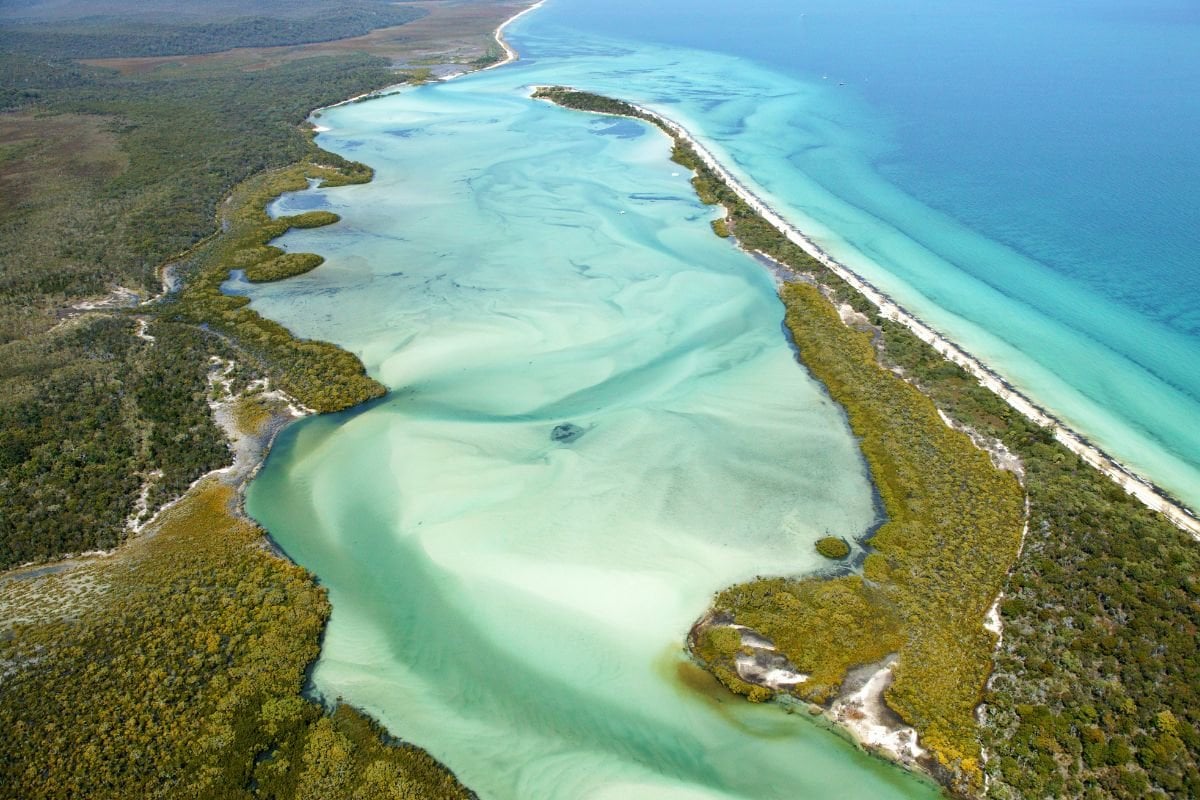
In mid-2023, the world’s largest sand island had its traditional name formally reinstated.
The World Heritage-listed site, nestled off Queensland’s south-east coast, would no longer be referred to as Fraser Island. It was, once again, K’gari. But to the Butchulla people, the traditional owners and custodians of the island, it has always been so.
The name (pronounced Gurrie) is derived from the island’s creation story, passed down orally by generations of Butchulla people. It tells of Princess K’gari, a white spirit who was sent down from the sky to help create the landscape and waters of the region.
Watch: Tony Armstrong addresses racism in Australia. Post continues after video.
Yet almost 200 years ago, this beautiful, ancient story was ignored and replaced by a contemporary narrative that occurred over just seven weeks in 1836. One involving a shipwreck, a fearful Englishwoman, and the deadly, far-reaching consequences of her story.
The dark story of Eliza Fraser

Top Comments